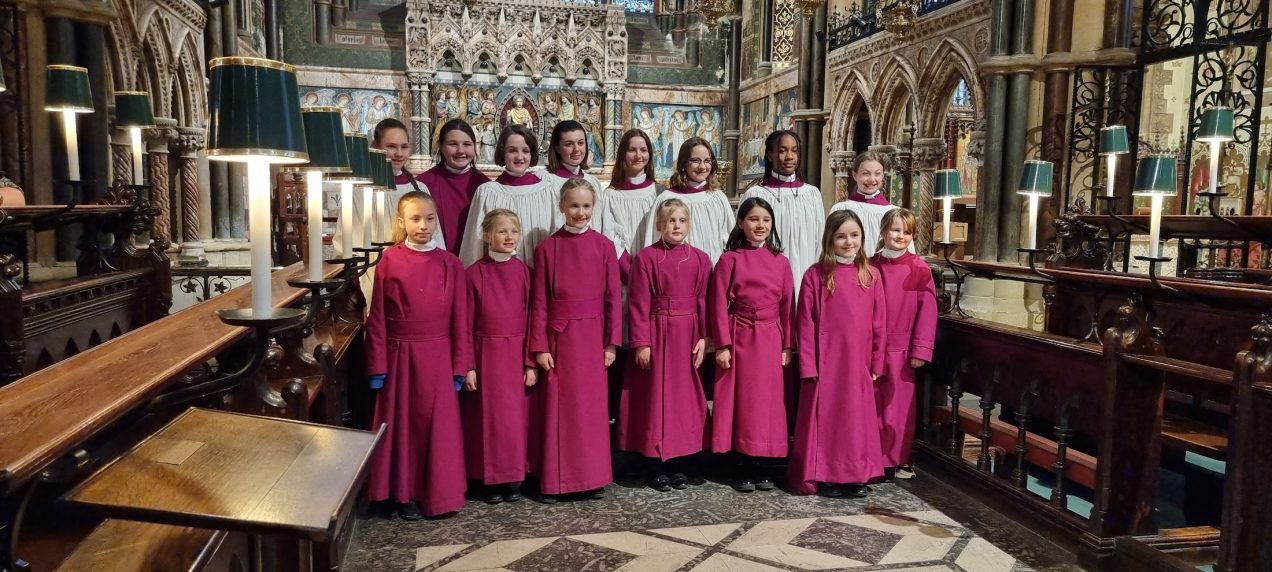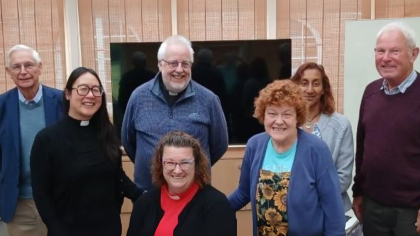The Church of England is seeking to address the fact that fewer children and young people than ever are coming to church, with Covid-19 having negatively impacted youth ministry perhaps more than any other area of church life.
In response, it has set an ambitious target of doubling the number of children and young people it has contact with by 2030, with work being done to train more youth workers and to showcase best practice in this area. Innovative ideas to attract more young people have included Bubble Church for preschoolers, Lego and even Minecraft Church.
Many churches who have a strong choral tradition are finding that continuing to include children and young people in choirs is bearing much fruit. We spoke to three parish churches in our diocese who are putting children at heart of their choral worship…
St Peter’s Bournemouth
“The choral tradition is central to worship at St Peter’s and having children involved has been part of the church’s life since it was built in the 1860s – in fact it was deemed as so important that the church brought 8 choristers from London to join the choir who lived in a boarding house down the road!” explained the choir master, Duncan Courts.
Children can come along to the choir from the age of 7 and they don’t need to have musical experience. There are currently 22 children involved: 22 in the girls choir and 6 in the boys choir. As many churches have found, the numbers took a hit due to the Covid pandemic, but the choir master has invested a lot of time and energy in building the choir back up again, including using social media to share lots of stories and photos (three children have joined since Christmas because they saw the activities online!).
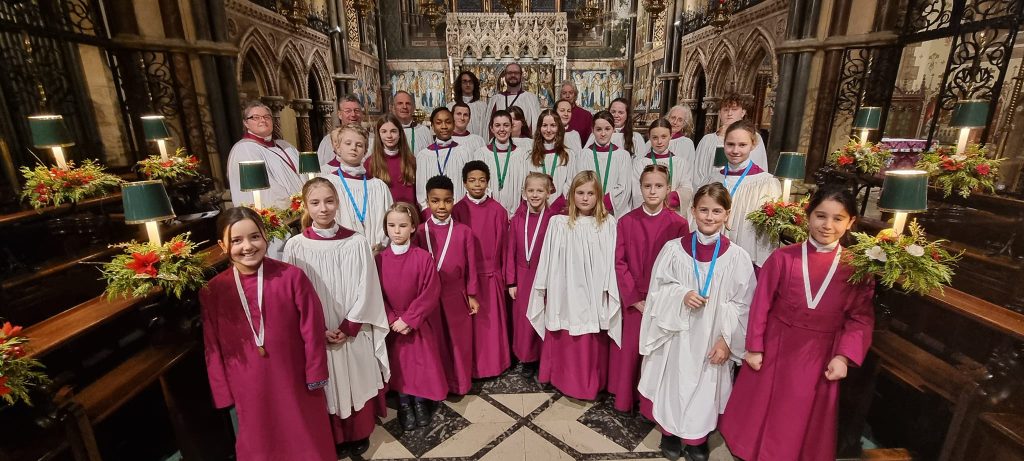
Each choir sings twice a month at the 10am service, going out for a short period for Sunday School, and then coming back again for Evensong.
They all come from different families, some with limited preexisting contact with the church. “Some are committed Christians, some are less certain, some have come to faith through being a chorister,” said Duncan, “but all have a sense that they are doing something important and meaningful. At the same time having a lot of fun!”
There are a further 20 or so children in the congregation who are then seeing children their own age being integrally involved in worship. “They will be witnessing the fact that there is no distinction between the children and the adults, there is no hierarchy, in fact the children are on the front row of the choir.”
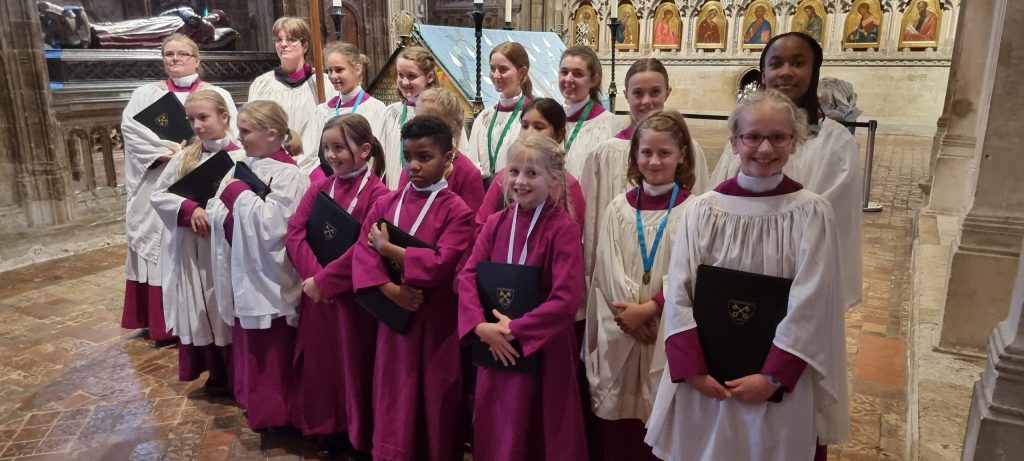
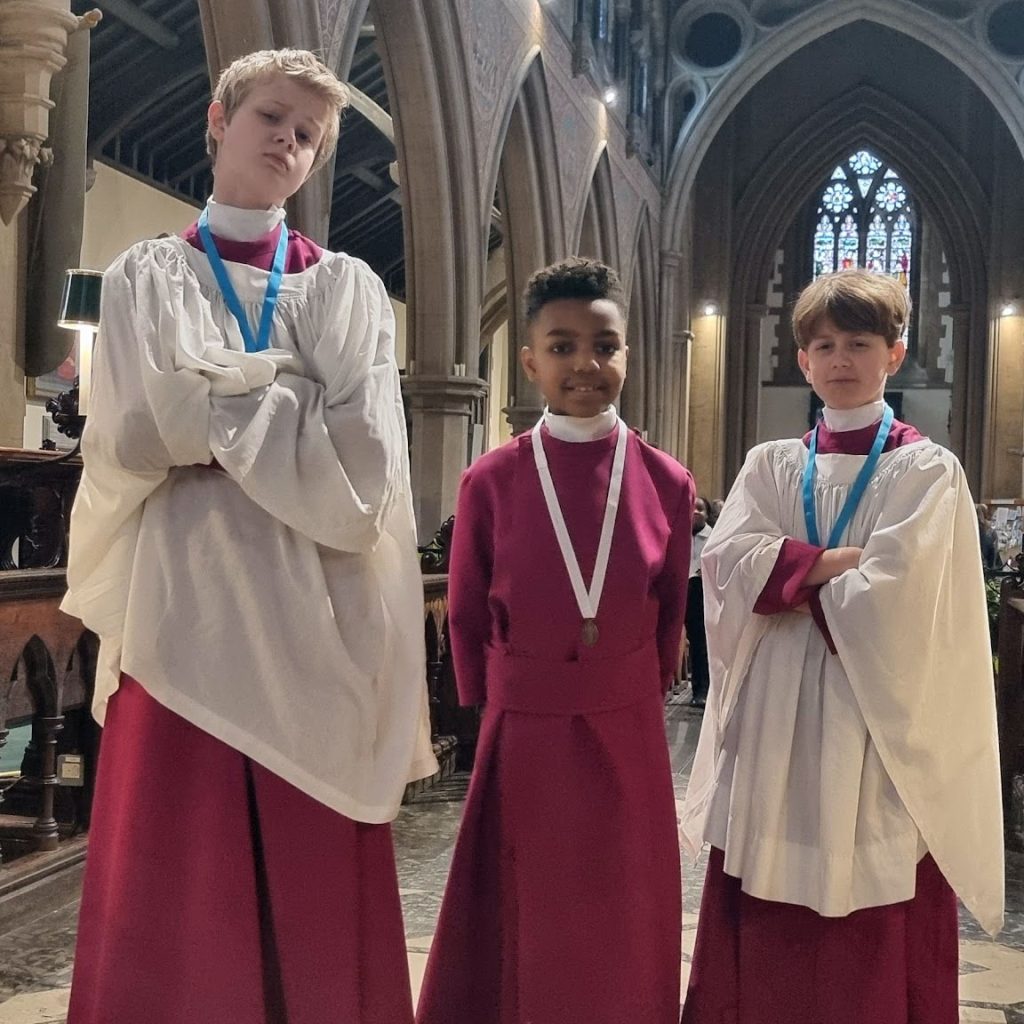
My experience is that children don’t just want to sit there being passive, they want to get involved, they want to be treated with respect, and given responsibility and opportunities to learn in a mature way.
Duncan Courts, Choir Master
The choir also meet for social activities including movies and pizza and trips to laser quest. But what keeps bringing them back together is the music – Duncan says, “they all love getting the opportunity to travel to other churches to sing. We take part in the Festival Evensong at Winchester Cathedral every year, and have sung Evensong at Salisbury, Portsmouth and Worcester Cathedrals, being ‘on tour’ is great fun!”
St Michael’s and All Angels, North Stoneham and Bassett
Helen Carmichael is the Junior Choir Leader and Church Warden at St Michael and All Angels agrees that Covid was a challenge for their parish church too: “We had to do a big relaunch after Covid which is when we began the Half Term singing days – we invited local schools to come along, and the aim is to be entirely inclusive and free. At the end of the day we put on a concert for the parents when we also introduce the idea of their children becoming a regular member of the choir.”
The Junior Choir, which currently comprises 8 children from school year 3 and upwards, leads the worship once a month and many of the children get involved in the liturgy in other ways: “Our rector Sheena also gets the children involved, including in helping prepare the elements.”
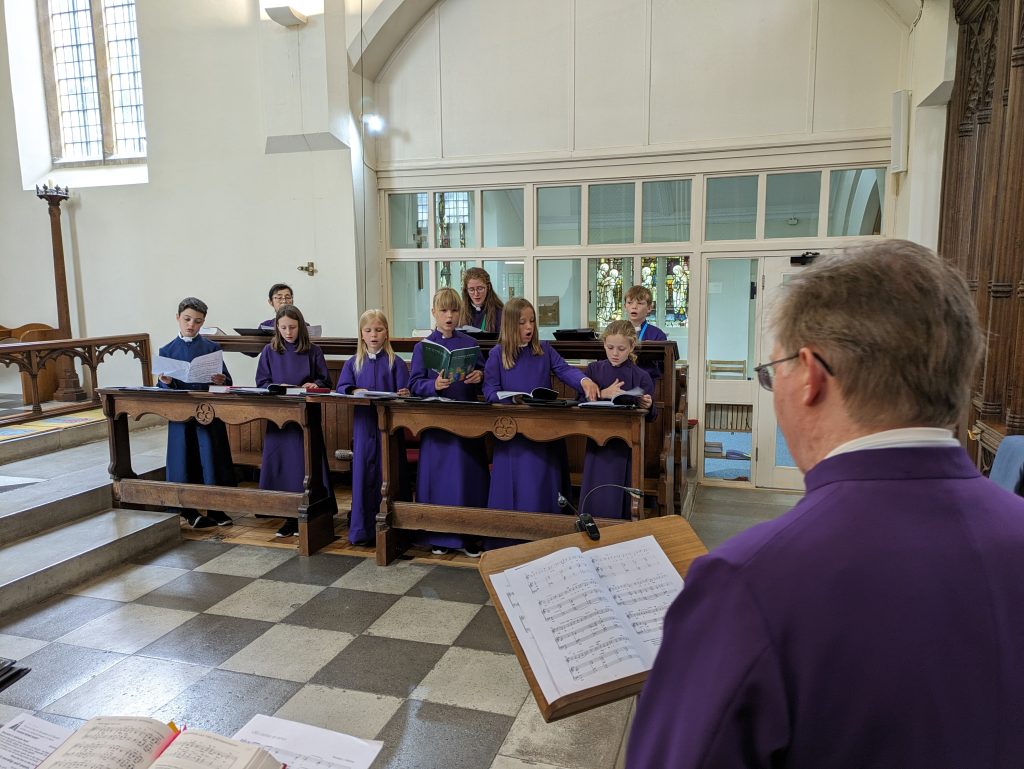
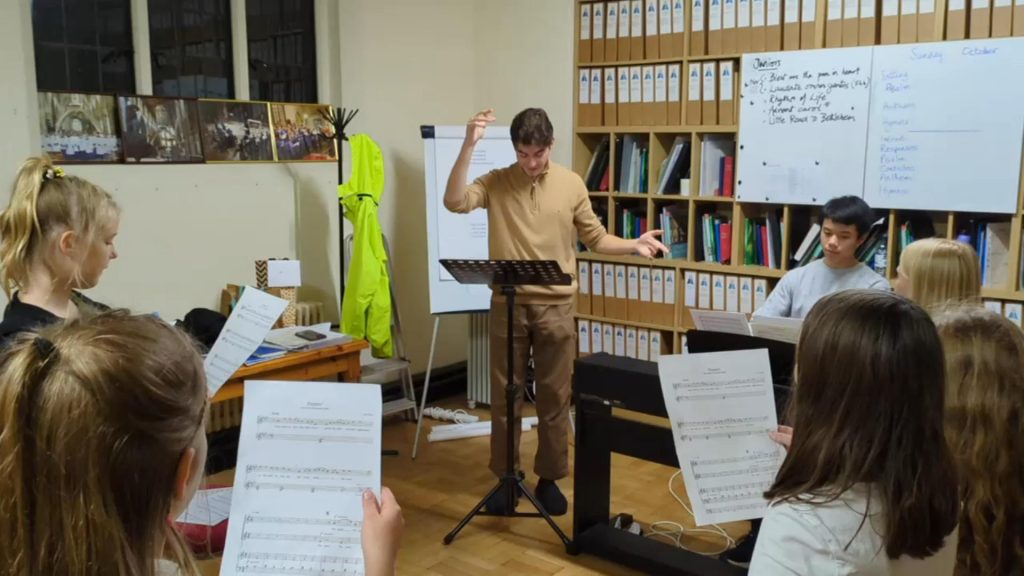
The church also uses the Voice For Life RCSCM course, which offers an introduction to music theory, how a choir works, the church seasons and what worship is; the choristers can complete the course online and they also touch on various aspects during choir practice. “We also recently did some work on how to sing psalms” explains Helen, “So it definitely music in the liturgical context and intrinsically bound up with Christian faith.”
Another source of encouragement for the young people has been the Year 11 organ scholar, a young man who began his musical journey in the choir and has stayed right through – Helen says “he is an excellent ambassador and inspiration for what the children could achieve”. The church also sponsors a university aged choral scholar who has responsibility for helping teach the junior choir, who is another great spur to the young people.
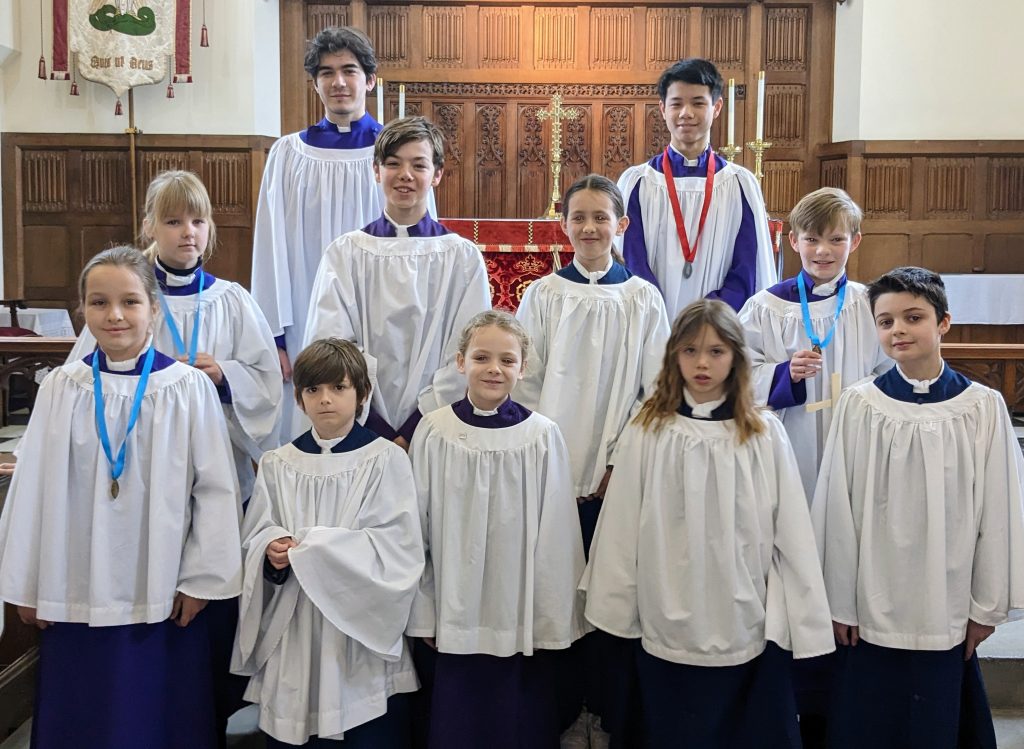
The new choir has come such a long way; when they first started you could hardly hear them – now they sing so beautifully and confidently!
Helen Carmichael, Junior Choir Leader
For Helen and the rest of the musicians, the ambition has been to include the children in the pursuit of excellent quality worship: “We want to pass on a passion for beautiful choral music to the next generation. And we show them that when you find something you love, that it takes some time and effort to get good at it. So in a way we expect quite a lot of them – they wear a surplus, they sit with the senior choir and have to learn when to be quiet, how to respond to a conductor, how to organize their music. These are life skills and it is a journey to maturity for many of them.
Romsey Abbey
Romsey Abbey offers a training choir for school years 3 and 4 to give children a taster, for which there are no auditions. After this they can transition into the Junior Choirs which goes up until school year 7. “We deliberately keep them there until the end of year 7 as there is so much change and disruption at that age as they start secondary school, so having something that doesn’t change is very valuable,” explained Martin Seymour, Director of Music at the Abbey.
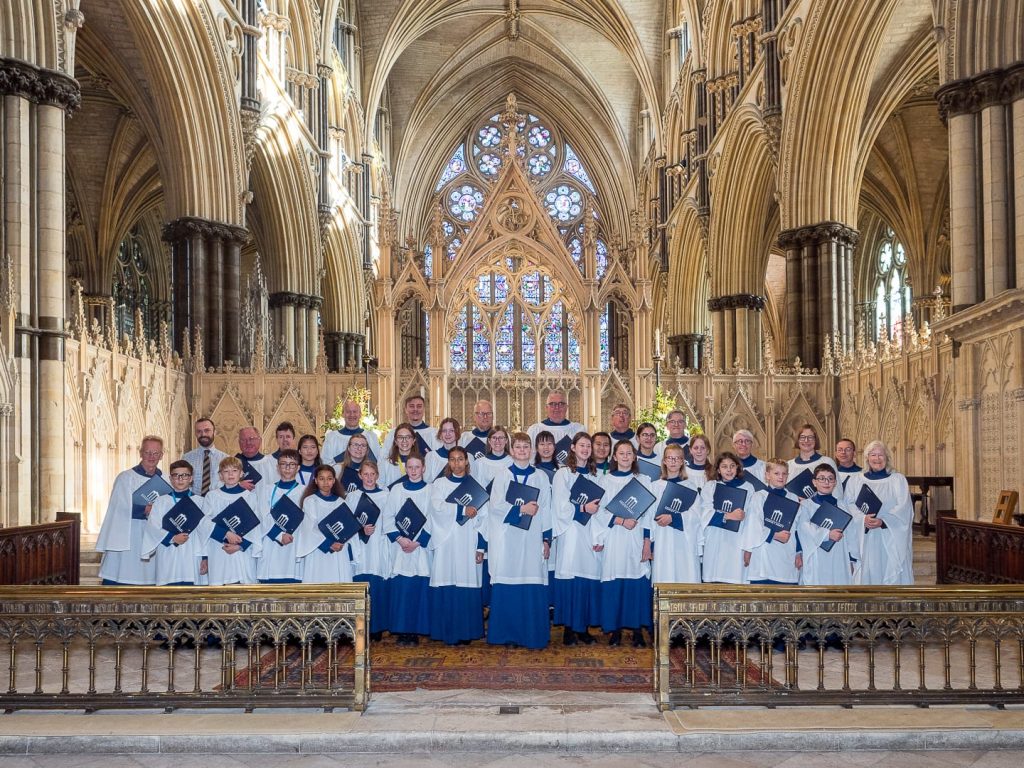
As well as spending time in each practice talking about the musical repertoire and how it reflects the current Christian season, the clergy will input some Christian teaching or come along for the occasional Q&A. They have also found there are opportunities to engage with the parents, most of whom are not church families, and invite them to Alpha and other events at church.
All the choirs are also given plenty of opportunity to socialize, build friendships and have fun as a community. A recent team building event, for example, was a chocolate workshop – each table given molds to design their own chocolate bars, and the evening included a chocolate quiz including a ‘guess the chocolate bar’ tasting round.
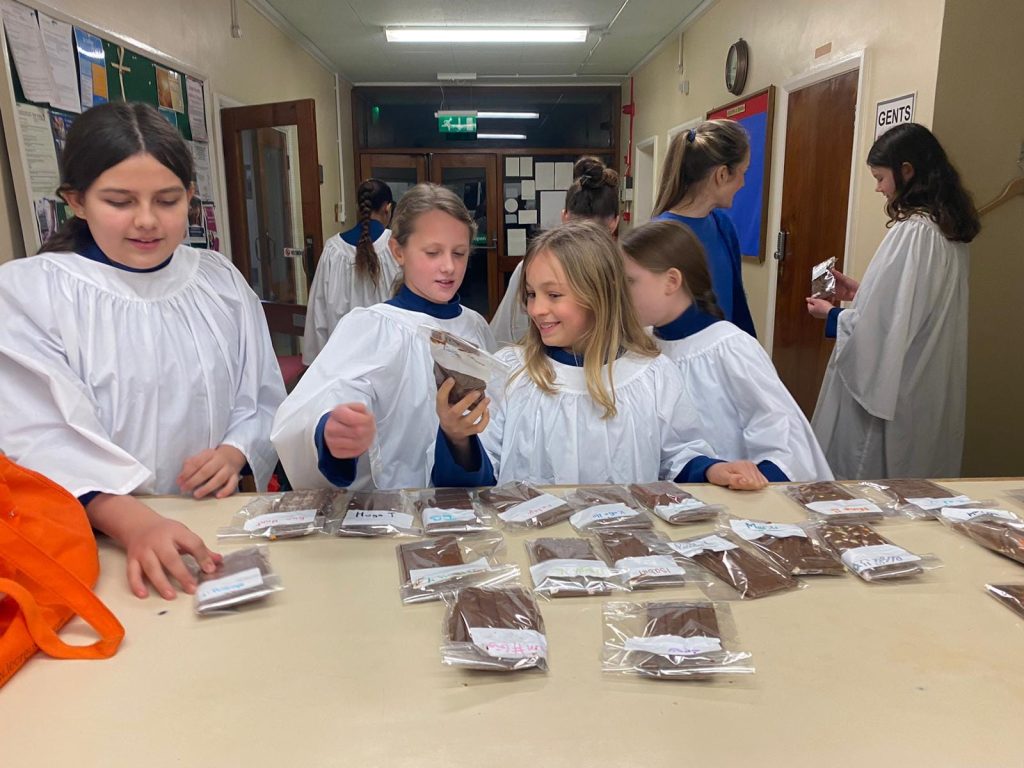
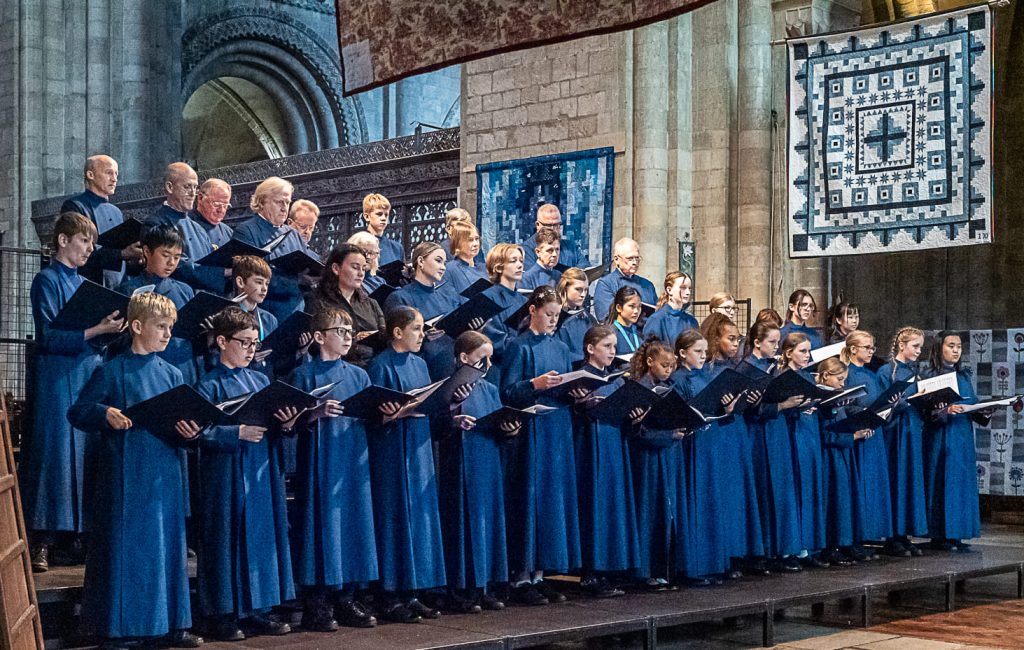
“There are so many spin offs for the young people. In their academic life, it improves their concentration, and they have exposure to other languages (mostly Latin) – and more generally they benefit from having a supportive close-knit community from different schools and across year groups. And of course there are the well-known benefits of singing and its positive effects on mental health,” said Martin.
We find that if you put something of quality in front of them, they will grab hold of it and run with it – children know when something is worth pursuing.
Martin Seymour, Director of Music

